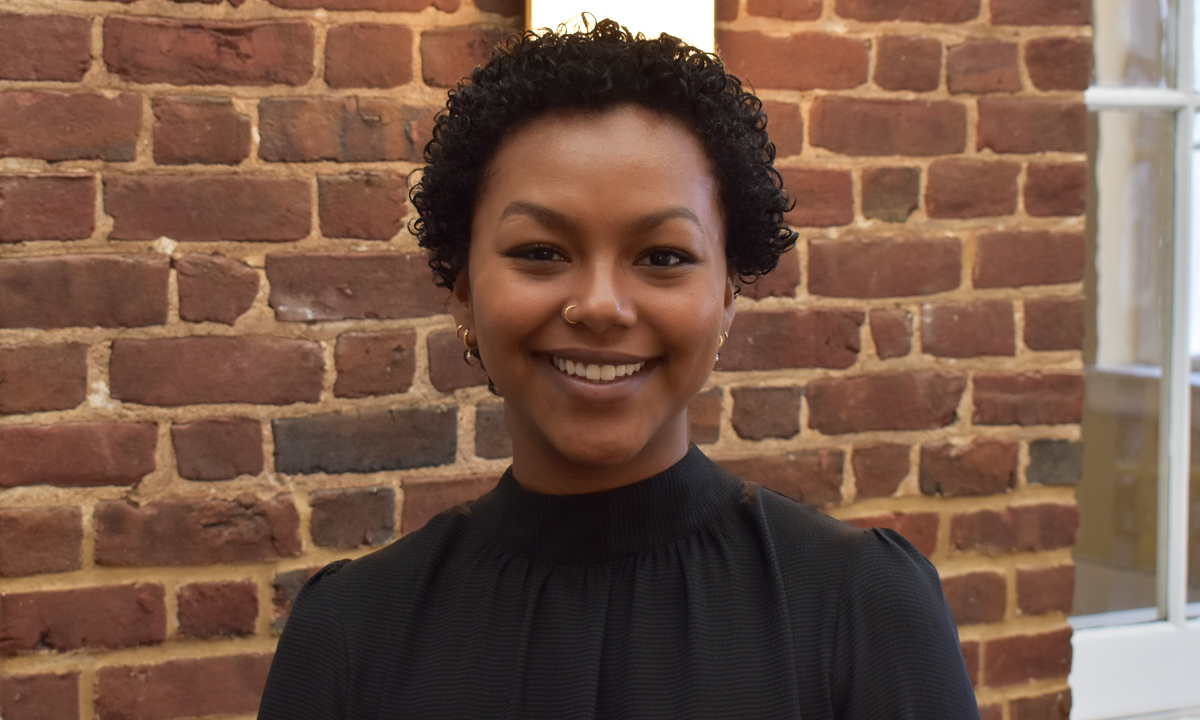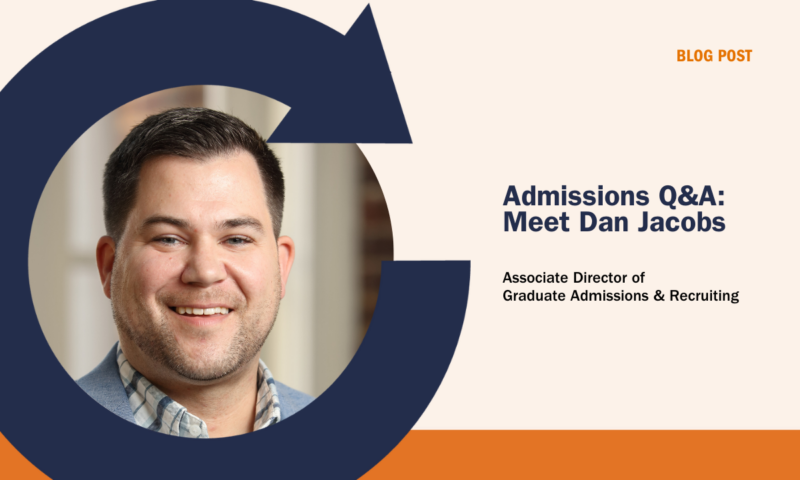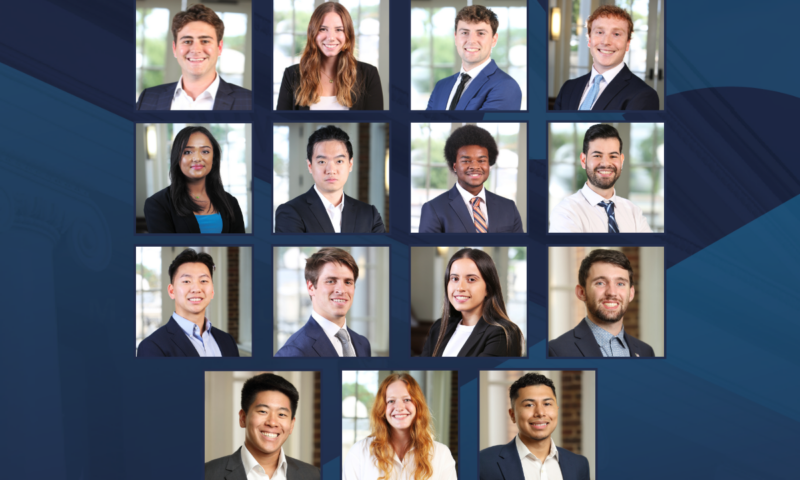By Bree Doby (M.S. in Commerce ’23)
M.S. in Commerce Program Director Professor Ira Harris, former Assistant Director of Graduate Admissions and Recruiting Tyler Graham, and student ambassadors gathered Nov. 4, 2022, for an introductory overview of the M.S. in Commerce (MSC) Program, a 10-month graduate program designed specifically for non-business majors looking to navigate the business landscape. Approximately 120 students learn about business and their respective tracks each year, graduating with a master’s degree in June of their academic year.
MSC Admissions Process
Before applying to the MSC Program, it is recommended that prospective students double-check their eligibility in terms of the prerequisite courses and non-business major requirements, and have graduated or will be graduating within 18 months of matriculation to the program. Once students have confirmed their eligibility for the program, the application checklist on the program’s website will help them prepare to submit their application. Once it is submitted, applicants might hear back from the Admissions Committee, at any point before their decision, about a possible interview or additional steps and information if needed. Once reached, the admissions decision will be posted to the application portal, including information about scholarships if granted.
MSC Curriculum Overview
In this accelerated master’s program, students begin with the Integrated Core Experience during their first semester, then during the spring semester transition into classes from one of four specialty tracks.
Integrated Core Experience
- Global Strategy and Systems: provides an overview of international business from both a strategic process perspective and the organization as a system
- Strategic Cost Management: covers the use of cost data in strategic planning and control to facilitate the development and implementation of business strategies
- Financial Accounting: incorporates the perspectives of accounting, corporate finance, and economics
- Marketing and Quantitative Analysis: introduces the marketing management processes that can be applied to various global markets
- Organizational Behavior: examines human behavior both within the organization and within the global business environment
- Financial Management: covers basic corporate finance, including the cost of capital, capital budgeting, valuation of stock and bonds, working capital management, and international finance
Biotechnology Track Spring Elective Options
- Design and Innovation in Medicine
- Recent Advances in Public Health Genomics
- Special Topics in Biomedical Engineering
- Bioprocess and Bioproduct Engineering
- Biochemical Engineering
Business Analytics Track Spring Elective Options
- Customer Analytics
- Advanced Quantitative Analysis
- Data Management for Decision Making
- Predictive Analytics with Low Code Technology
- Managerial View of AI
- Unstructured Data Analytics
- Python for Data Science
- Essentials of Project Management
- Consulting
Finance Track Spring Elective Options
- Corporate Valuation and Financing
- Asset Management
- ESG Accounting
- Python for Data Science
- Data Aggregation & Visualization
- Financial Trading Analytics
- Mergers & Acquisitions, Private Equity, and Restructuring
- Consulting
- Real Estate Investments and Analysis
Marketing & Management Spring Track Elective Options
- Brand Strategy and Integrated Marketing Communication
- Product & Project Management
- Digital Strategy and Analytics
- Consumer Behavior and Pricing Strategies
- Developing and Managing Innovative New Products
- Managerial View of AI
- Data Aggregation and Visualization
- Essentials of Project Management
- Consulting
- Entrepreneurship and Technology Commercialization
- Data Management for Decision Making
MSC Global Immersion Experience
Students embark on the Global Immersion Experience, or GIE, in the spring. It begins with a course called Foundations of Global Commerce, which lays the foundation for economic and social influences on international business.
Once the semester has ended, students leave the classroom and spend the next few weeks in one of several different locations worldwide. First, a weeklong residence in Charlottesville provides an overview of each student’s assigned region. Then, students travel overseas with other classmates and a professor on a three-week trip of academic, company, and cultural visits.
Need more details or have questions? Sign up for an advising appointment to chat with a member of the Graduate Admissions Team.



